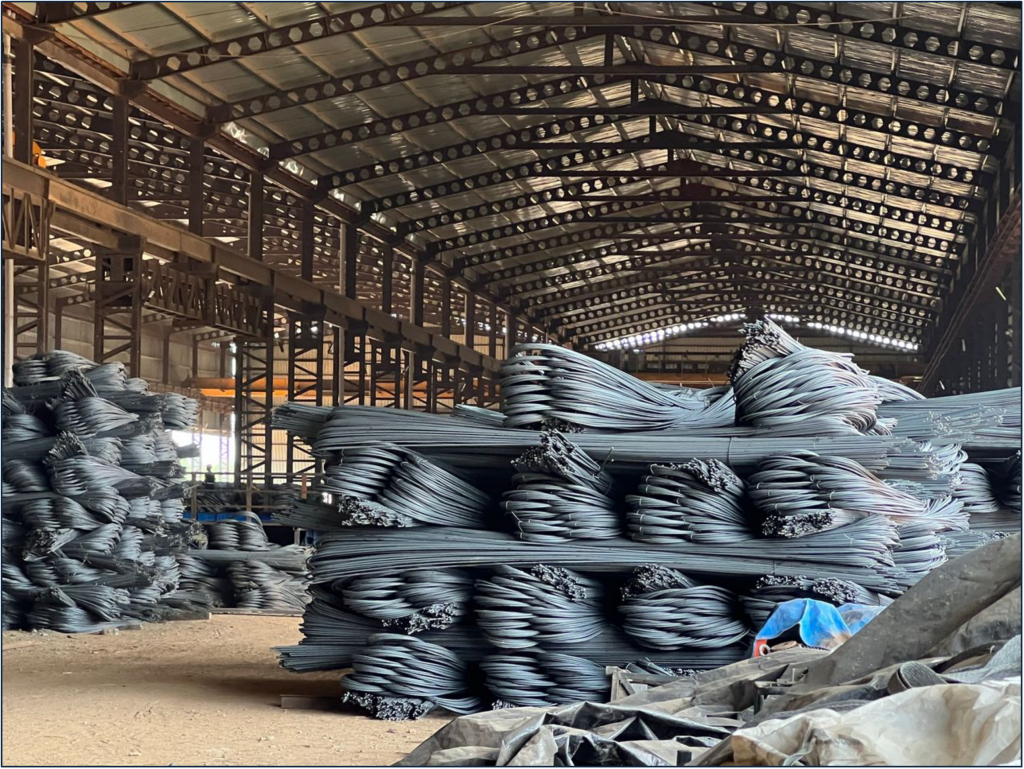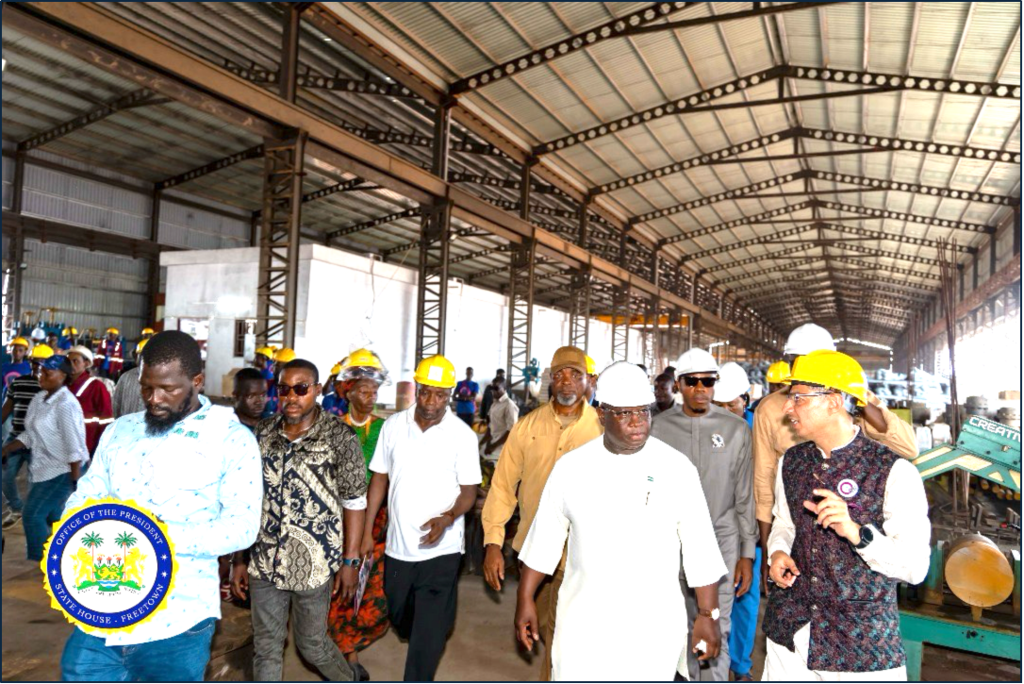His Excellency, President Dr Julius Maada Bio, launched the nation’s first-ever iron rod manufacturing factory, owned by Odhav Multi Industries (SL) Limited, reaching a historic industrial milestone. The facility is projected to save the country between US$250 million and US$500 million annually in iron rod importation costs while reducing dependency on foreign exchange.
In his keynote address, President Bio emphasized that the factory represents a significant leap forward in the country’s industrial development and economic self-sufficiency. He noted that the facility, which will produce 120,000 metric tons of iron rods annually, aligns with his administration’s vision of fostering a thriving manufacturing sector and attracting foreign investment.
“This launch marks a new era of industrial take-off for Sierra Leone,” the President declared. “We are committed to unlocking opportunities for foreign investments, and our policies are tailored to support sustainable industrial growth. The presence of Odhav Multi Industries underscores our readiness for industrial transformation,” he said.
The President acknowledged challenges faced by some factories, including energy constraints, and reassured stakeholders of his government’s plans to address these issues promptly. He urged the residents of Koya Chiefdom to safeguard the factory’s assets, underscoring the company’s significant investment in the community. President Bio reiterated his administration’s commitment to fostering a conducive environment for private-sector growth and foreign investment.
He assured investors that the government would continue to implement policies and incentives to support manufacturing industries like Odhav Multi Industries. “This is the Sierra Leone we are building—a nation where the private sector thrives, and our manufacturing industries compete globally,” the President concluded.

Minister of Trade and Industry Ibrahim Sesay hailed the factory as a testament to President Bio’s vision for industrial self-reliance. He highlighted how his administration has facilitated the establishment of 30 manufacturing factories since he took office, creating over 25,000 jobs nationwide.
“The iron rods produced by Odhav Multi Industries will not only save Sierra Leone $300 million in annual importation costs but also ease the pressure on foreign exchange,” Minister Sesay stated. He noted that substandard imported iron rods, some of which fall short of international standards, have plagued the local market, but emphasized that his ministry is now strongly collaborating with the Sierra Leone Standards Bureau to ensure quality control. Odhav Multi Industries is set to produce not only iron rods, but also nails, wire meshes, binding wires, and industrial gases, such as oxygen and nitrogen.
Resident Minister for the North-Western Region, Ambassador Umaru Bond Wurie, praised the venture for its potential to reduce foreign exchange dependency while contributing to the district’s development.
“The Port Loko District has witnessed significant progress under President Bio’s leadership, including the establishment of a new airport, the first girls’ school, and a 100-bed hospital,” he remarked.
Chairman of Odhav Multi Industries, Nilesh Katarmal, attributed the company’s establishment to President Bio’s investor-friendly policies. He highlighted ongoing plans to expand into renewable energy sectors, such as solar and hydroenergy. “We are committed to producing high-quality iron rods at affordable prices while contributing to Sierra Leone’s industrial growth,” Mr Katarmal stated.
Paramount Chief of Koya Chiefdom, Bai Kompa Bomboli IV, commended President Bio for his dedication to the district’s development and called on residents to support the factory. He emphasized the importance of ensuring the security of the facility to maximize its long-term benefits for the community. The establishment of Sierra Leone’s first iron rod manufacturing factory signals a transformative step towards industrial self-reliance, reducing import dependency, creating jobs, and boosting the local economy.
